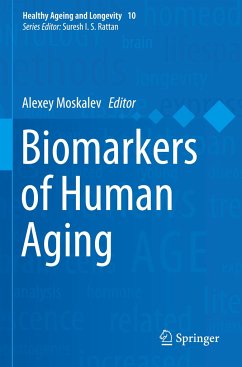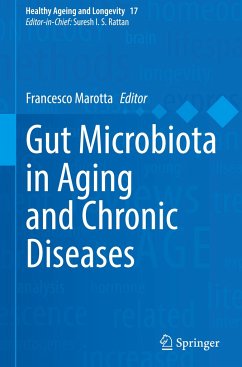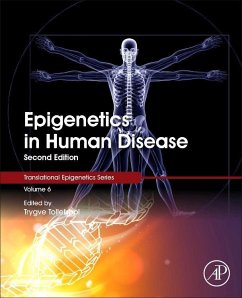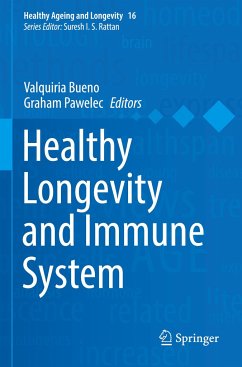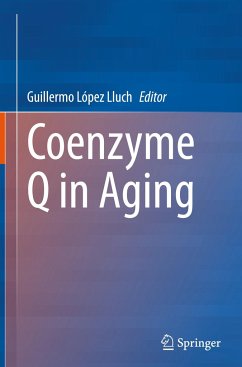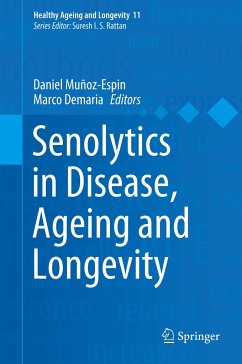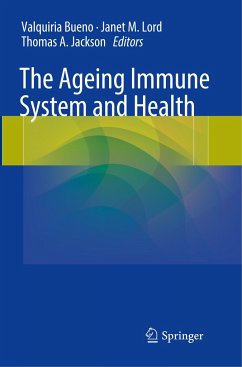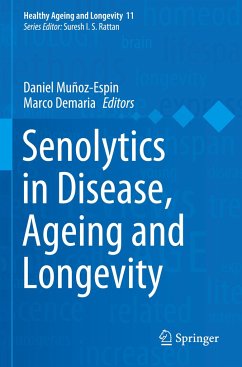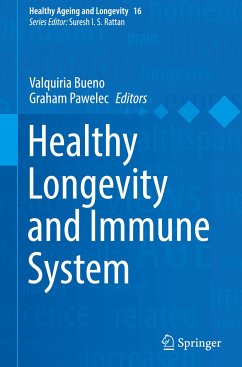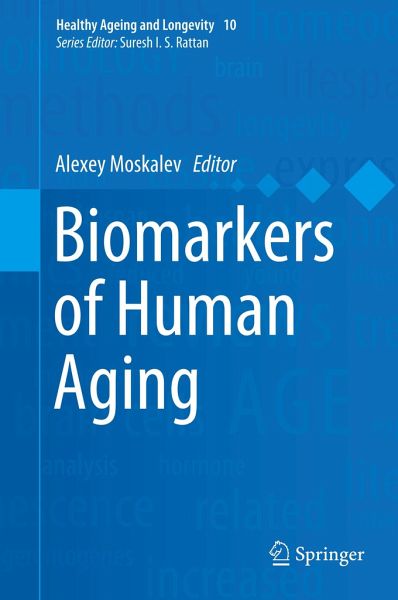
Biomarkers of Human Aging

PAYBACK Punkte
65 °P sammeln!
This book collects and reviews, for the first time, a wide range of advances in the area of human aging biomarkers. This accumulated data allows researchers to assess the rate of aging processes in various organs and systems, and to individually monitor the effectiveness of therapies intended to slow aging.In an introductory chapter, the editor defines biomarkers of aging as molecular, cellular and physiological parameters that demonstrate reproducible changes - quantitative or qualitative - with age. The introduction recounts a study which aimed to create a universal model of biological age, ...
This book collects and reviews, for the first time, a wide range of advances in the area of human aging biomarkers. This accumulated data allows researchers to assess the rate of aging processes in various organs and systems, and to individually monitor the effectiveness of therapies intended to slow aging.
In an introductory chapter, the editor defines biomarkers of aging as molecular, cellular and physiological parameters that demonstrate reproducible changes - quantitative or qualitative - with age. The introduction recounts a study which aimed to create a universal model of biological age, whose most predictive parameters were albumin and alkaline phosphatase (indication liver function), glucose (metabolic syndrome), erythrocytes (respiratory function) and urea (renal function).
The book goes on to describe DNA methylation, known as the "epigenetic clock," as currently the most comprehensive predictor of total mortality. It is also useful for predicting mortality from cancer and cardiovascular diseases, and for analyzing the effects of lifestyle factors including diet, exercise, and education.
Individual contributions draw additional insight from research on genetics and epigenetic aging markers, and immunosenescence and inflammaging markers. A concluding chapter outlines the challenge of integrating of biological and clinical markers of aging.
Biomarkers of Human Aging is written for professionals and practitioners engaged in the study of aging, and will be useful to both advanced students and researchers.
In an introductory chapter, the editor defines biomarkers of aging as molecular, cellular and physiological parameters that demonstrate reproducible changes - quantitative or qualitative - with age. The introduction recounts a study which aimed to create a universal model of biological age, whose most predictive parameters were albumin and alkaline phosphatase (indication liver function), glucose (metabolic syndrome), erythrocytes (respiratory function) and urea (renal function).
The book goes on to describe DNA methylation, known as the "epigenetic clock," as currently the most comprehensive predictor of total mortality. It is also useful for predicting mortality from cancer and cardiovascular diseases, and for analyzing the effects of lifestyle factors including diet, exercise, and education.
Individual contributions draw additional insight from research on genetics and epigenetic aging markers, and immunosenescence and inflammaging markers. A concluding chapter outlines the challenge of integrating of biological and clinical markers of aging.
Biomarkers of Human Aging is written for professionals and practitioners engaged in the study of aging, and will be useful to both advanced students and researchers.





